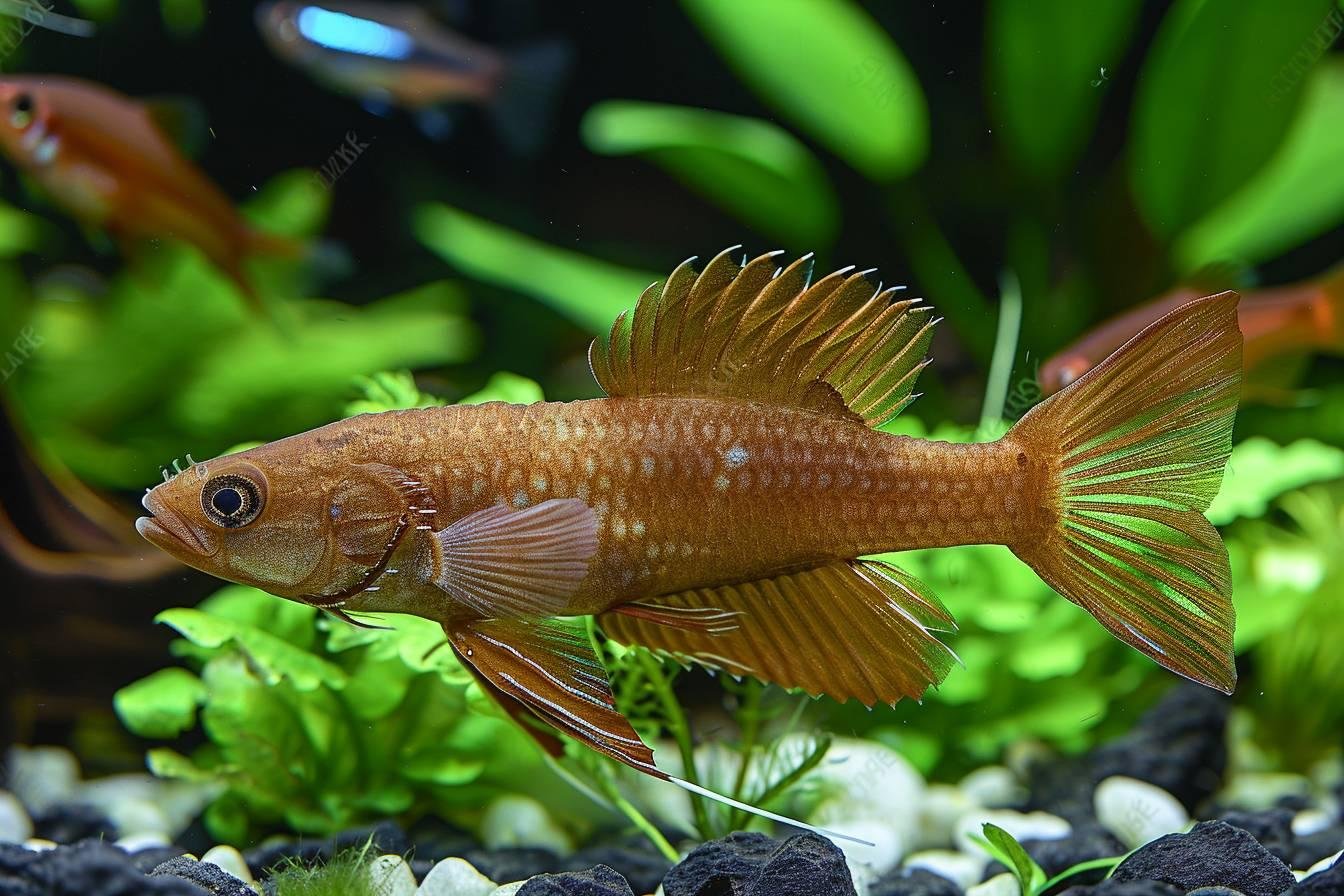Ah, ancistrus in ponds! As a pet shop floor manager, I had the opportunity to observe and breed these charming creatures. Let me share my experience with you and guide you through the fascinating world of theancistrus bassin.
Description and characteristics of ancistrus
The ancistrus, also known as the "brush fish", is a small freshwater fish native to South America. Belonging to the Loricariidae family, these bottom cleaners have become very popular in aquariums around the world. Here are some important characteristics to be aware of:
- Size: between 10 and 20 cm in adulthood
- Life expectancy: up to 20 years
- Behaviour: peaceful and rather nocturnal
- Habitat: groundfish
An amusing anecdote: on my first encounter with an ancistrus, I thought I was seeing an aquatic alien with tentacles on its snout! In reality, it was simply a male with his characteristic growths. Females, on the other hand, have smooth snouts.
Lifestyle and diet
Contrary to popular belief, ancistrus are not real "cleaning fish". Admittedly, they do love to nibble on algaeBut they need a varied, balanced diet. Their diet is omnivorous, mainly herbivorous. In the wild, they feast on algae, soft wood and plant detritus.
In an aquarium, offer them :
- Fresh vegetables (courgettes, spinach)
- Special granules for bottom-feeding fish
- Seaweed tablets
Reproduction and sexual dimorphism
Ancistrus can be reproduced in aquariums under suitable conditions. Males can be distinguished by the excrescences on their snouts, which are absent in females. It's a captivating sight to see a male fiercely protecting his egg-laying nest!
The ideal home for your ancistrus
So that your ancistrus bassin to its full potential, it's important to provide it with the right environment. Here are the key elements for creating a little aquatic paradise:
Aquarium size and layout
An aquarium of at least 200 litres is recommended for these fish. They love hiding places and non-cutting decorations such as roots or hollowed-out coconuts. I once created a veritable maze of roots for my ancistrus, and it was a real pleasure to see them happily threading their way between the obstacles!
Don't forget that good filtration is essential, as these fish produce a lot of waste. A powerful, efficient filter is therefore essential for maintaining good water quality.
Water parameters
Ancistrus are sensitive to water conditions. Here are the ideal parameters to respect:
| Parameter | Recommended value |
|---|---|
| Temperature | 24°C - 28°C |
| pH | 6,5 – 7,5 |
Be careful, ancistrus are not suitable for overwintering. outdoor pool in France. Even if some individuals born outdoors can survive lower temperatures (down to 5°C), this is very risky for their health.
Cohabitation and socialisation
Good news for fans of community aquariums: ancistrus generally cohabit well with other peaceful species. They can even be good companions for koi carp in an aquariumprovided you have enough space.

Care and maintenance
Now that you know the basics, here are a few practical tips for looking after your ancistrus:
- Carry out regular water changes (around 20% per week)
- Clean the filter regularly
- Monitor water quality with appropriate tests
- Vary your diet to avoid deficiencies
- Regularly observe the behaviour of your fish to detect any health problems.
By following these recommendations, you'll be offering your ancistrus the best possible living conditions. Don't forget that every fish has its own personality: some will be more shy, others more adventurous. That's what makes aquarium keeping so fascinating!
So, are you ready to welcome these adorable 'brushers' into your aquarium? With a little care and a lot of love, your ancistrus will quickly become the stars of your little aquatic world. And who knows, maybe you'll develop the same passion for these interesting bottom-dwelling fish as I have!
Sources :
